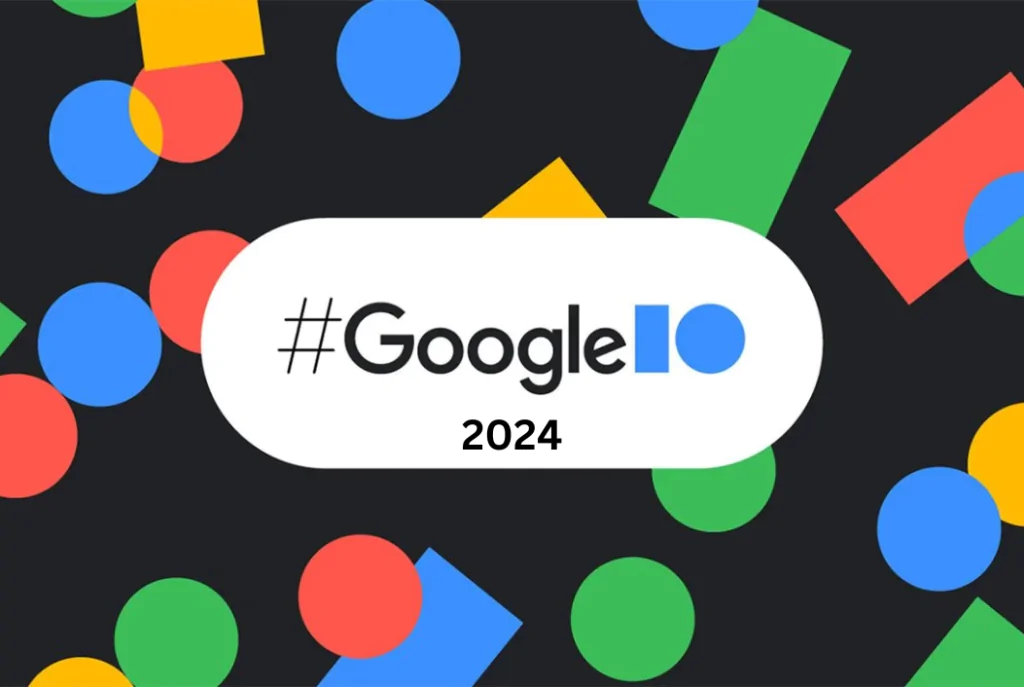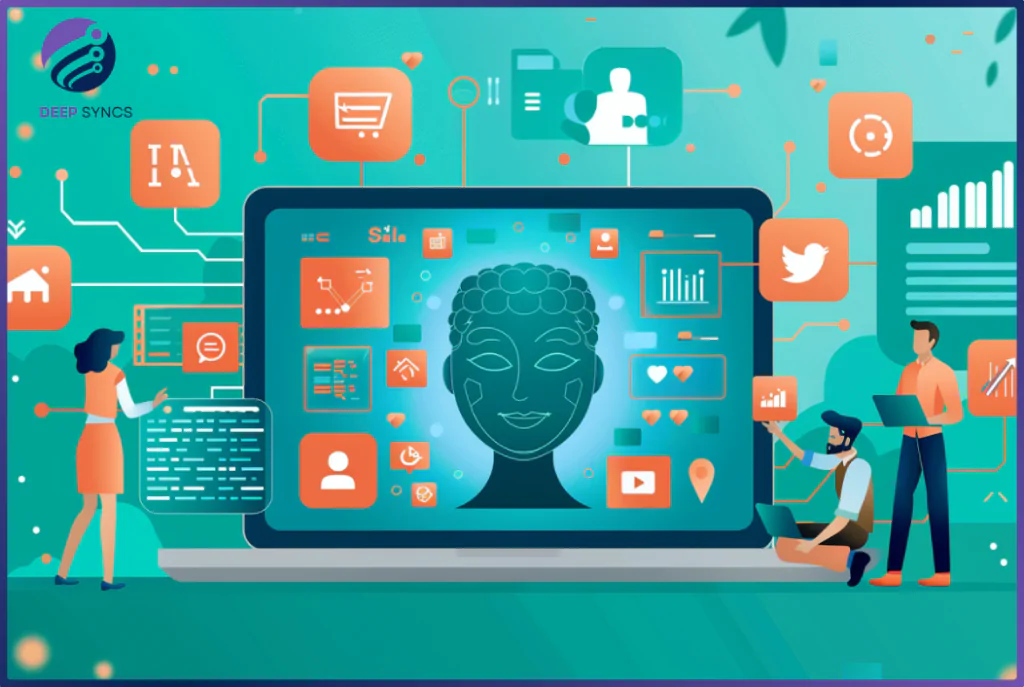Introduction to Google I/O 2024
Google I/O 2024 has once again set the stage for groundbreaking advancements and innovations in the tech world. Held at the Shoreline Amphitheatre in Mountain View, California, this year’s event was a spectacle of technology, showcasing Google’s latest developments in artificial intelligence, hardware, and software. Here’s a detailed look at the key highlights and announcements from Google I/O 2024.
Evolution of Google I/O
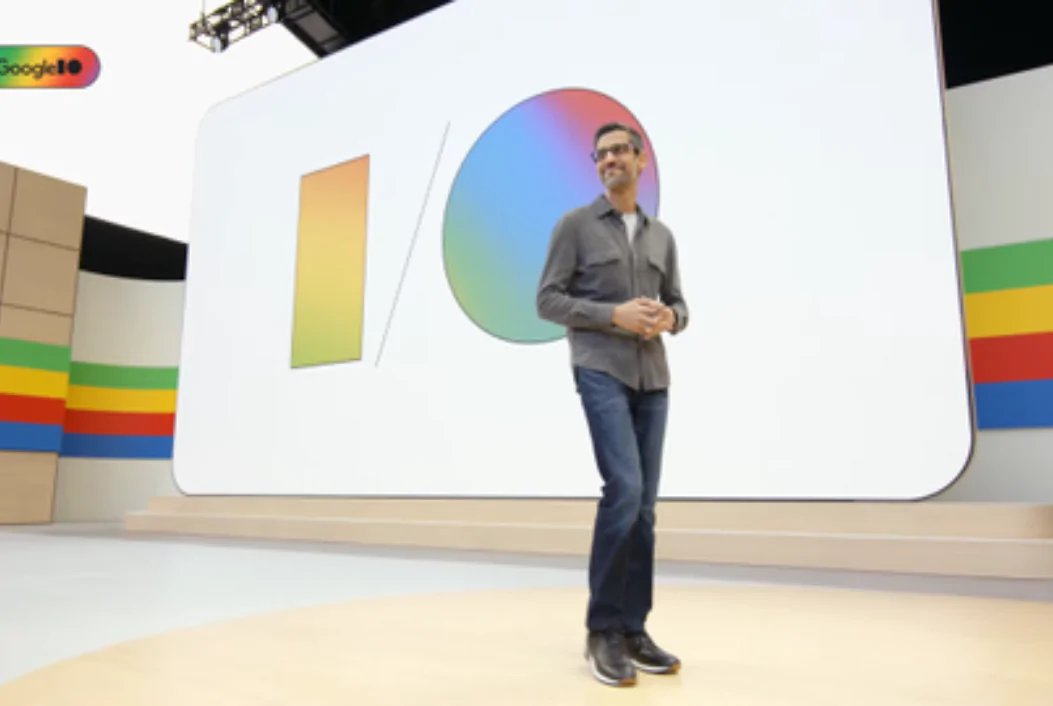
Since its inception in 2008, Google I/O has evolved from a modest developer-focused event into a major technology conference that draws global attention. Initially aimed at providing in-depth technical sessions for developers working with Google’s platforms, the event has expanded significantly in scope and scale. Over the years, Google I/O has become a showcase for Google’s most ambitious projects and cutting-edge innovations, including advancements in artificial intelligence, smart hardware, and cloud computing.
Each year, the conference reveals new products, software updates, and tools that not only empower developers but also signal the future direction of consumer technology. The evolution of Google I/O reflects Google’s broader strategy of integrating advanced technologies into everyday life, emphasizing accessibility, sustainability, and ethical AI development. Today, Google I/O is a landmark event in the tech industry, setting the stage for technological trends and developments that shape our digital experiences.
1. AI-Powered Enhancements: The Next Frontier
Artificial intelligence took center stage at Google I/O 2024. Google continues to push the boundaries of what AI can achieve, introducing several enhancements across its product ecosystem:
-
Google Assistant 3.0: The latest version of Google Assistant is more intuitive and conversational. It boasts improved natural language understanding, making interactions more fluid and context-aware. This update allows the Assistant to handle more complex queries and tasks seamlessly.
-
Project Tailwind: This innovative AI-driven project aims to revolutionize content creation and research. Tailwind uses advanced machine learning algorithms to assist writers, researchers, and students by generating contextually relevant content, summarizing information, and providing detailed insights on various topics.
-
AI for Accessibility: Google is leveraging AI to improve accessibility tools. New features include enhanced speech-to-text accuracy, real-time language translation, and intuitive gesture controls, making technology more inclusive for users with disabilities.
2. Hardware Unveils: Power Meets Elegance
Google unveiled an impressive lineup of hardware products designed to integrate seamlessly with its AI-driven software solutions:
-
Pixel 9 and Pixel 9 Pro: The latest additions to the Pixel family come with significant upgrades in camera technology, battery life, and processing power. The new AI-enhanced camera features promise even better low-light performance, advanced image stabilization, and real-time object recognition.
-
Pixel Watch 2: Building on the success of its predecessor, the Pixel Watch 2 features a sleek design, improved battery life, and a host of new health-tracking features powered by AI, including advanced sleep monitoring and personalized fitness recommendations.
-
Google Nest Hub Max 2: This upgraded smart display comes with a larger screen, enhanced sound quality, and improved integration with Google’s AI ecosystem. It also introduces new features such as facial recognition for personalized user experiences and advanced home automation capabilities.
3. Software Updates: More Intuitive and Connected
Google’s software ecosystem saw numerous updates aimed at making devices more interconnected and user-friendly:
-
Android 15: The latest version of Android brings a host of new features, including improved privacy controls, enhanced battery optimization, and deeper integration with Google’s AI services. Android 15 also introduces a new design language, offering a more customizable and visually appealing user interface.
-
Google Workspace Enhancements: Google’s suite of productivity tools received several AI-powered updates, including smart document summarization in Google Docs, predictive text in Google Sheets, and advanced meeting analytics in Google Meet. These features are designed to boost productivity and streamline workflows for users.
-
ChromeOS Improvements: ChromeOS continues to evolve with new features aimed at enhancing productivity and security. Updates include faster boot times, improved support for Android and Linux apps, and advanced security features powered by AI to protect users from emerging threats.
Google I/O 2024: Enhanced Privacy Features for Better User Control and Data Security
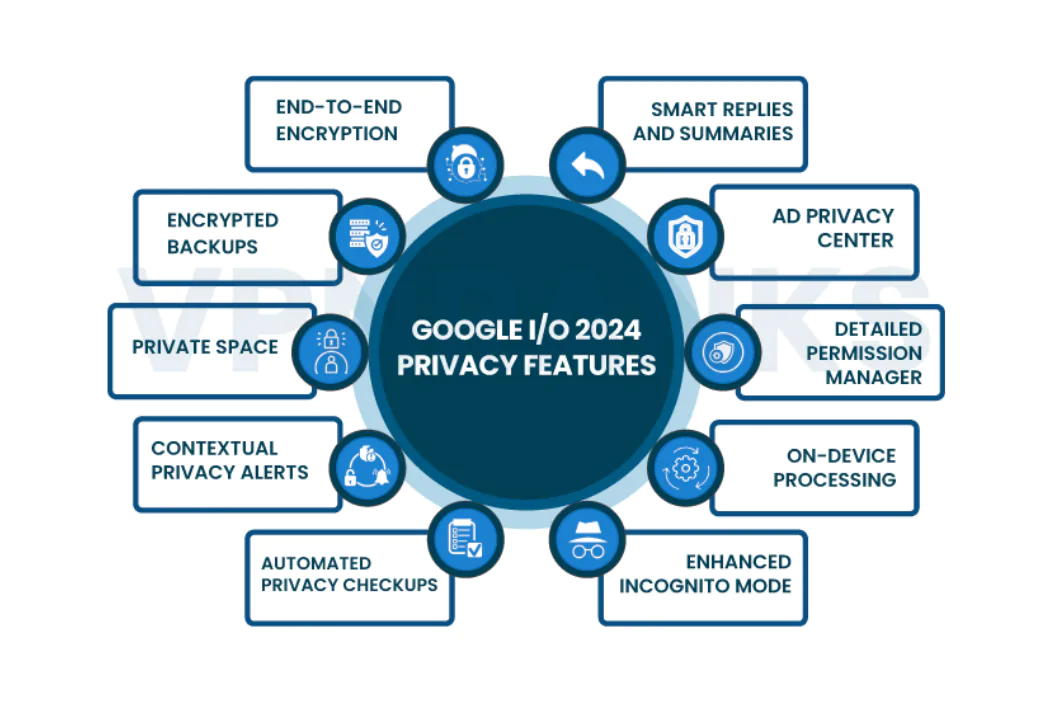
At Google I/O 2024, Google unveiled a suite of new privacy features designed to give users greater control over their data and enhance security across its services. Here are the highlights:
Enhanced Data Protection
- End-to-End Encryption: Expanded across more services, including Gmail and Google Drive, ensuring data is secure and inaccessible to unauthorized parties.
- Encrypted Backups: Allows users to back up their data securely, making it unreadable without the correct encryption key.
Private Space
- Secure Section for Sensitive Apps: Creates a secure section on your phone for sensitive apps like work or banking apps, locked with extra authentication, and keeps data and notifications hidden from your main profile.
AI-Enhanced Privacy Controls
- Contextual Privacy Alerts: AI provides alerts and suggestions when apps request sensitive permissions.
- Automated Privacy Checkups: Periodically reviews privacy settings and recommends adjustments based on usage patterns and new threats.
Improved Anonymous Browsing
- Enhanced Incognito Mode: Upgraded with better tracking prevention and anonymous browsing capabilities.
Data Minimization
- On-Device Processing: Processes data locally on the device, reducing data sent to Google’s servers. This includes voice commands, image recognition, and personalized content recommendations.
Transparency and Control
- Detailed Permission Manager: Allows users to see a breakdown of what data each app accesses and provides options to modify these permissions easily.
- Ad Privacy Center: Central place to manage ad settings and preferences, including seeing what data is used for personalized ads and opting out of targeted advertising.
AI-Driven Email Privacy
- Smart Replies and Summaries: AI helps manage email privacy by summarizing threads and suggesting replies without sending data to external servers, keeping interactions more private.
Screen Sharing Safeguards
- Protections for Screen Sharing: Prevents others from seeing private information like notifications and one-time passcodes during screen sharing.
Theft Detection Lock
- AI-Powered Theft Detection: Locks down your phone if it detects a snatch theft, making it harder for thieves to access your information.
Google Play Protect
- On-Device Live Threat Detection: Uses on-device AI to identify malicious apps in real-time, keeping data on your device.
- Enhanced Fraud App Detection: Uses AI to detect apps that try to hide their suspicious activity, coming later this year.
Advantages of Google I/O 2024
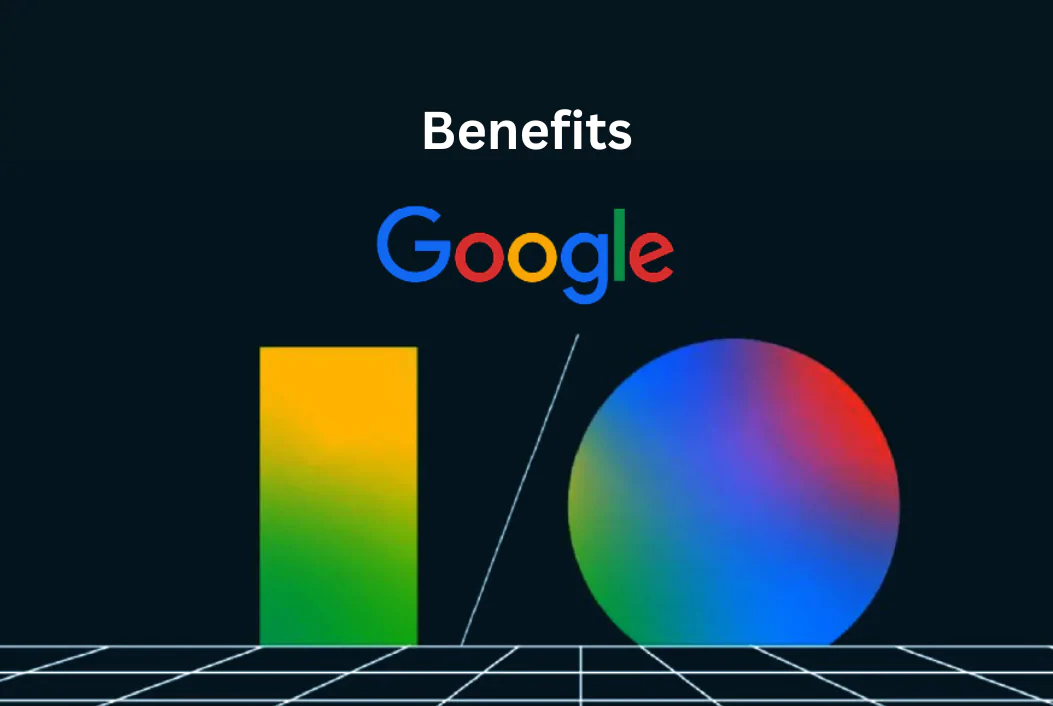
Google I/O 2024 brought a myriad of advantages, offering something valuable for developers, tech enthusiasts, and the general public alike. Here are some of the key benefits highlighted during this year’s event:
1. Cutting-Edge AI Innovations
One of the foremost advantages of Google I/O 2024 is the unveiling of advanced AI technologies. Google’s enhancements in artificial intelligence, such as Google Assistant 3.0 and Project Tailwind, promise to make digital interactions more intuitive and productive. These AI advancements streamline tasks, improve accessibility, and provide smarter, more context-aware assistance, making technology more responsive to user needs.
2. Advanced Hardware Releases
The introduction of new hardware, including the Pixel 9 and Pixel 9 Pro, Pixel Watch 2, and Google Nest Hub Max 2, showcases Google’s commitment to integrating powerful AI capabilities with elegant and functional design. These devices offer superior performance, enhanced features, and seamless integration with Google’s ecosystem, providing users with an enriched digital experience.
3. Enhanced Software Ecosystem
Google I/O 2024 announced significant updates to its software platforms, such as Android 15 and ChromeOS. These updates bring improved privacy controls, better battery optimization, and more customizable user interfaces. The enhancements in Google Workspace also facilitate greater productivity with AI-driven features, making everyday tasks simpler and more efficient for users and businesses.
4. Focus on Sustainability and Ethical AI
Google’s commitment to sustainability and ethical AI development was a major highlight. The company’s pledge to achieve carbon neutrality by 2030 and its focus on developing AI responsibly ensures that technological advancements benefit society without compromising ethical standards. This approach builds trust and positions Google as a leader in sustainable and ethical tech development.
5. Empowerment of Developers
For developers, Google I/O 2024 offered a wealth of new tools and opportunities. The introduction of Flutter 4.0, updates to Firebase, and new AI and machine learning tools in Google Cloud provide developers with powerful resources to create innovative applications. These tools enable faster development, improved performance, and easier integration of advanced AI features, fostering innovation and enhancing the developer community’s capabilities.
6. Community and Networking Opportunities
Google I/O 2024 provided a platform for developers, industry experts, and tech enthusiasts to connect, share knowledge, and collaborate. The event’s sessions, workshops, and networking opportunities allowed attendees to learn from Google’s top engineers, gain insights into the latest tech trends, and build valuable professional relationships.
4. Sustainability and Ethical AI
Google I/O 2024 emphasized the company’s commitment to sustainability and ethical AI development. Google announced ambitious plans to achieve carbon neutrality across all its products and operations by 2030. Additionally, the company is investing in initiatives to ensure AI technologies are developed and deployed responsibly, with a focus on transparency, fairness, and inclusivity.
5. Developer Tools and Opportunities
For developers, Google I/O 2024 was a treasure trove of new tools and opportunities:
-
Flutter 4.0: The latest version of Google’s open-source UI software development kit introduces new features for building natively compiled applications for mobile, web, and desktop from a single codebase. Enhancements include improved performance, new widgets, and expanded support for web and desktop platforms.
-
Firebase Updates: Google’s mobile and web application development platform received several updates, including new machine learning tools, enhanced real-time database capabilities, and improved integration with other Google services.
-
Google Cloud Innovations: Google Cloud introduced new AI and machine learning tools, including pre-trained models for natural language processing and image recognition, making it easier for developers to integrate advanced AI capabilities into their applications.
Conclusion
Google I/O 2024 showcased a remarkable array of innovations that promise to shape the future of technology. From AI-powered enhancements and cutting-edge hardware to software updates and ethical AI initiatives, Google is poised to lead the way in making technology more intuitive, interconnected, and inclusive. As these developments unfold, users and developers alike can look forward to a more seamless and intelligent digital experience.
FAQ
Q1: What is Google I/O?
- Google I/O is an annual developer conference held by Google to showcase the company’s latest products, technologies, and innovations. The event features keynote presentations, technical sessions, and hands-on labs for developers.
Q2: When and where was Google I/O 2024 held?
- Google I/O 2024 was held at the Shoreline Amphitheatre in Mountain View, California.
Q3: What were the main themes of Google I/O 2024?
- The main themes of Google I/O 2024 included advancements in artificial intelligence, new hardware releases, software updates, sustainability efforts, ethical AI development, and new tools for developers.
Q4: What are the key AI advancements announced at Google I/O 2024?
- Key AI advancements include Google Assistant 3.0 with improved natural language understanding, Project Tailwind for AI-driven content creation, and enhanced accessibility tools using AI.
Q5: What new hardware products were unveiled at Google I/O 2024?
- Google unveiled the Pixel 9 and Pixel 9 Pro smartphones, Pixel Watch 2, and Google Nest Hub Max 2.
Q6: What are the major features of the Pixel 9 and Pixel 9 Pro?
- The Pixel 9 and Pixel 9 Pro feature upgraded cameras with AI enhancements, better battery life, and more powerful processors.
Q7: What improvements does the Pixel Watch 2 offer?
- The Pixel Watch 2 offers a sleek design, improved battery life, advanced health-tracking features, and personalized fitness recommendations powered by AI.
Q8: What’s new in the Google Nest Hub Max 2?
- The Google Nest Hub Max 2 features a larger screen, enhanced sound quality, facial recognition for personalized experiences, and advanced home automation capabilities.
Q9: What are the significant updates in Android 15?
- Android 15 includes improved privacy controls, enhanced battery optimization, deeper integration with AI services, and a new customizable design language.
Q10: What new features were introduced for Google Workspace?
- Google Workspace received AI-powered updates such as smart document summarization in Google Docs, predictive text in Google Sheets, and advanced meeting analytics in Google Meet.
Q11: How has ChromeOS been improved?
- ChromeOS updates include faster boot times, better support for Android and Linux apps, and enhanced security features powered by AI.
Q12: What are Google’s sustainability goals mentioned at I/O 2024?
- Google aims to achieve carbon neutrality across all its products and operations by 2030 and is investing in initiatives to develop and deploy AI responsibly.
Learn more about AI Tools.
